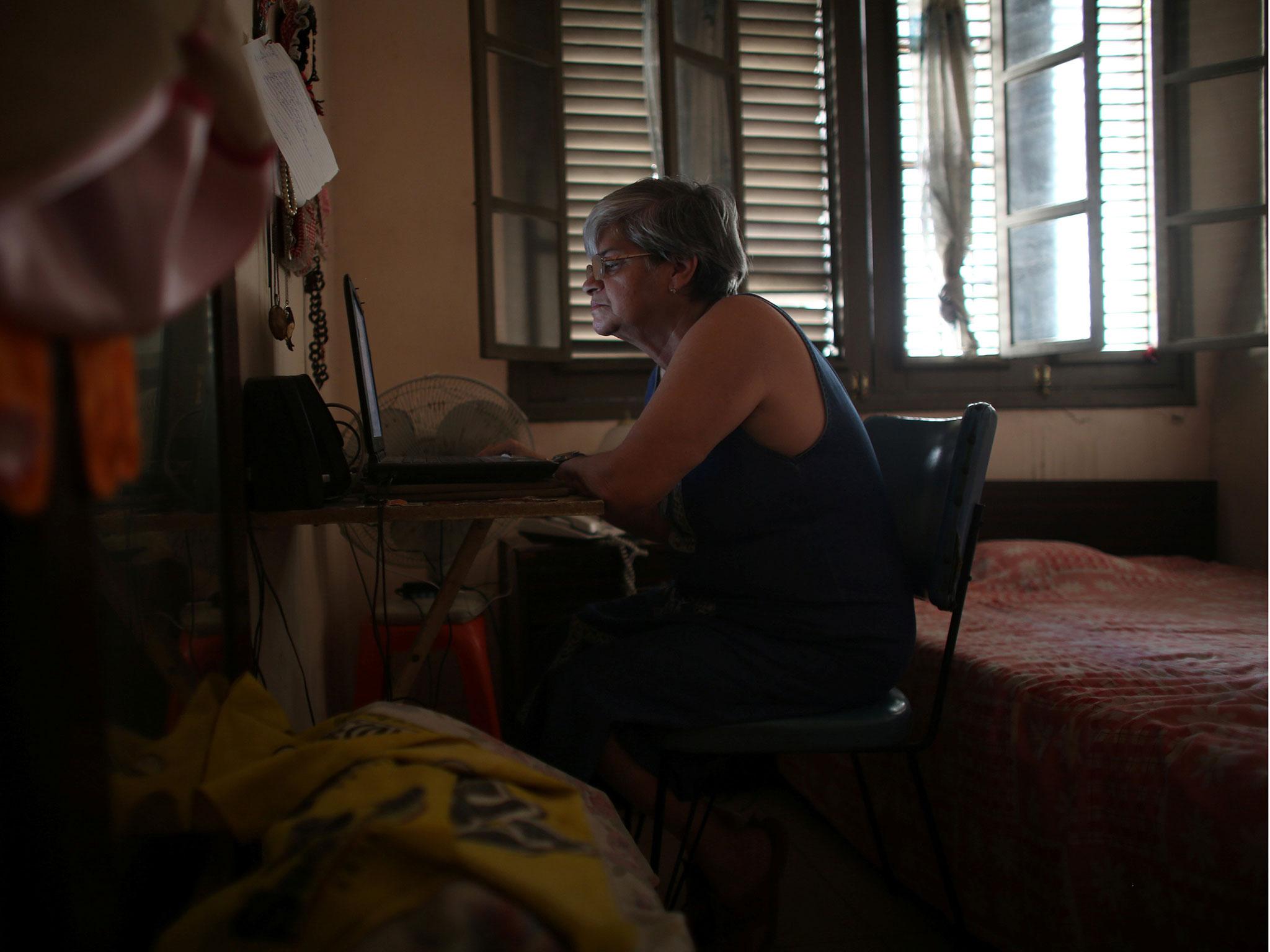Cuba sets up free internet for Havana residents in pilot scheme
Only five per cent of Cubans are estimated to enjoy internet at home

Your support helps us to tell the story
From reproductive rights to climate change to Big Tech, The Independent is on the ground when the story is developing. Whether it's investigating the financials of Elon Musk's pro-Trump PAC or producing our latest documentary, 'The A Word', which shines a light on the American women fighting for reproductive rights, we know how important it is to parse out the facts from the messaging.
At such a critical moment in US history, we need reporters on the ground. Your donation allows us to keep sending journalists to speak to both sides of the story.
The Independent is trusted by Americans across the entire political spectrum. And unlike many other quality news outlets, we choose not to lock Americans out of our reporting and analysis with paywalls. We believe quality journalism should be available to everyone, paid for by those who can afford it.
Your support makes all the difference.Downtown Havana resident Margarita Marquez says she received a special Christmas gift this year: web access at home, a rarity in Cuba, a country with one of the lowest internet penetration rates in the world.
Ms Marquez, a 67-year-old retired university professor, was among those selected by the government two weeks ago to participate in a pilot project bringing the web into the homes of 2,000 inhabitants of the historic centre of the island's capital.
Most of Communist-ruled Cuba's 11.2 million inhabitants only have access to internet at wi-fi hotspots, and only then if they can afford the 80p hourly tariff that represents around five per cent of the average monthly state salary.
Only five per cent of Cubans are estimated to enjoy internet at home, which requires government permission. This is usually granted mainly to academics, doctors and intellectuals.
"It's like a dream come true," said Ms Marquez, who lives with her sister in a second-story flat in a colonial-era building. "To be in touch with the outside world is important."
Her 80-year-old sister, Leonor Franco, said the news they had been selected came as a surprise and she was excited to be surfing the web for the first time.
"I had never had any experience of internet," she said, seated in front of a laptop she has owned for two years without web access, searching for videos of her favourite singers on YouTube.
She said she wanted to learn how to surf the web properly so she could make the most of the experiment, and for as long as the government provided free internet access.
"From March we will have to start paying and we don't know if we will be able to continue. So at least we are going to enjoy January and February," she said.
While the cost of internet has dropped in recent years, it is still prohibitive for most Cubans.
Cuba says it has been slow to develop network infrastructure because of high costs in part due to the US trade embargo. Critics say the real reason is fear of losing control.
Before wi-fi signals became available last year, broadband internet access had been limited largely to desktops at state internet parlors and pricy hotels.
However, the government has said it wants to ensure everyone has access and has installed 237 wi-fi hotspots so far. In September, it announced it would install wi-fi along Havana's picturesque seafront boulevard, the Malecon.
"There are many places now where you can go and sit and connect along the Malecon," said Eliecer Samada as he sat on the stone wall lining the boulevard, checking social media on his phone. "We're happy with this."
Reuters
Join our commenting forum
Join thought-provoking conversations, follow other Independent readers and see their replies
Comments